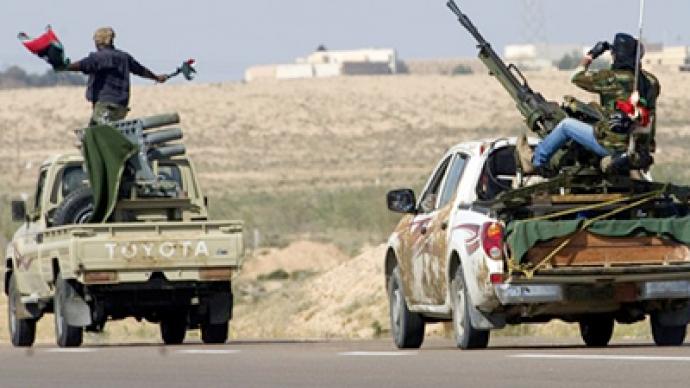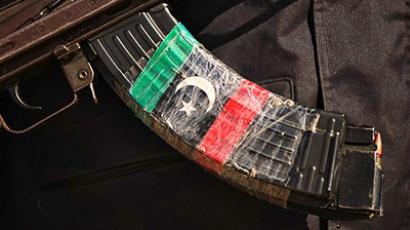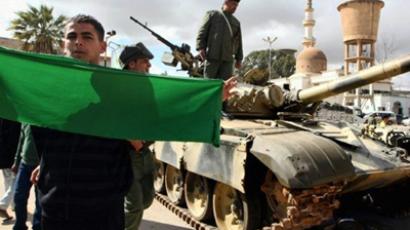Libya on fire, who’s next?

As fighting for control over the cities of Brega and Misrata continues in Libya, RT looks at how the military operation could just be the start of Washington's wider goals in the region.
With no official death toll available, international estimates put the number of civilians killed at close to a thousand after almost two months of clashes.Meanwhile, the US is stepping away from the frontline, encouraging other NATO countries to increase their military contribution.As waves of public rage sweep through North Africa and the Middle East, world powers are jumping on them, many analysts say, in an attempt to direct the waves of unrest in a way that is most favorable for them. In Libya, this means forging a relationship with the opposition, so that if Gaddafi goes there will be people there to do business with.As Syrian popular wrath gathers steam, some experts say western powers might see the advantages of getting involved there too. “These three countries, Libya, Syria, Iran are the main countries that will not align themselves automatically with global power elites or the western powers’ interests in the North of Africa and the Middle East, as, for example Egypt, Saudi Arabia or Kuwait will do,” believes political researcher Adrian Salbuchi.Syria is Iran’s closest ally in the region. And the calls to support the revolt in Syria often come with mentions of Iran.“Syria is a strategic ally in the region. Without Syria, Iran loses its bridges to Lebanon and the Hezbollah forces. If the Syrian regime falls that would destabilize Iran and weaken its power in the region, which will be an obvious benefit to the Anglo-American forces,” says international journalist James Corbett.Some experts believe that destabilization is part of a strategy the West pursues in the region. “We see a strategy, which includes, among other things, weakening of sovereign regimes in the Arab world in order to try to isolate Iran and leave it with few friends in the region, which will facilitate further turmoil inside Iran,” Salbuchi says.Although the US Secretary of State has ruled out America’s involvement in Syria for now, the country’s Defense Secretary called for the Syrian army to “empower a revolution” and follow the example of Egypt’s military. “Syria and Iran are next on America’s list. At some point they will rise to the head of the queue just the way Libya did,” says radio host and author Stephen Lendman. Many say Iran, though, would be a tough call, and no matter how much Washington would want the regime there to fall, for now it’s seen as a “mission impossible.” “There are forces in the US who would like to attack Iran or take over the Iranian opposition, but I think they know Iranian opposition are not so fond of the US. People have a long memory in the US,” the director of the New Internationalism Project at IPS, Phyllis Bennis says, adding: “So I don’t see that the US would be welcomed there, and they know that in Washington.”
In the meantime, the Deputy Foreign Minister of Iran, Muhammad Ali Fathollahi, told RT that Afghanistan is a strong example of how international intervention in the region only deepens a crisis.“Countries from outside the region that have military bases here are intervening in our affairs. They try to change the interaction between governments and people in the region. And the changes that are taking place in the Arab world are in the reaction to that. The West under US leadership is trying to use these changes for their own purposes,” Fathollahi stated.“In Afghanistan for example, the interference of NATO has been unsuccessful: they failed to bring security, drug production is now forty times bigger than before, and extremism is on the rise. But the US is planning to create permanent bases in the region and that only boosts radicalism, as many Afghans are against this,” he concluded.
Michael Parenti, a political analyst and author, says that the war is not only for oil, it is really to teach Libya a lesson. And Syria and Iran could be in line for, what he calls, being taught a lesson. “Iran can be destroyed by air attacks. They have 10 thousand targets all mapped out. They will not send any troops – the US does not have any troops to fight in Iran. It is too big a country – too costly. But they can do what they did to Yugoslavia, which is just destroy it by air. “














